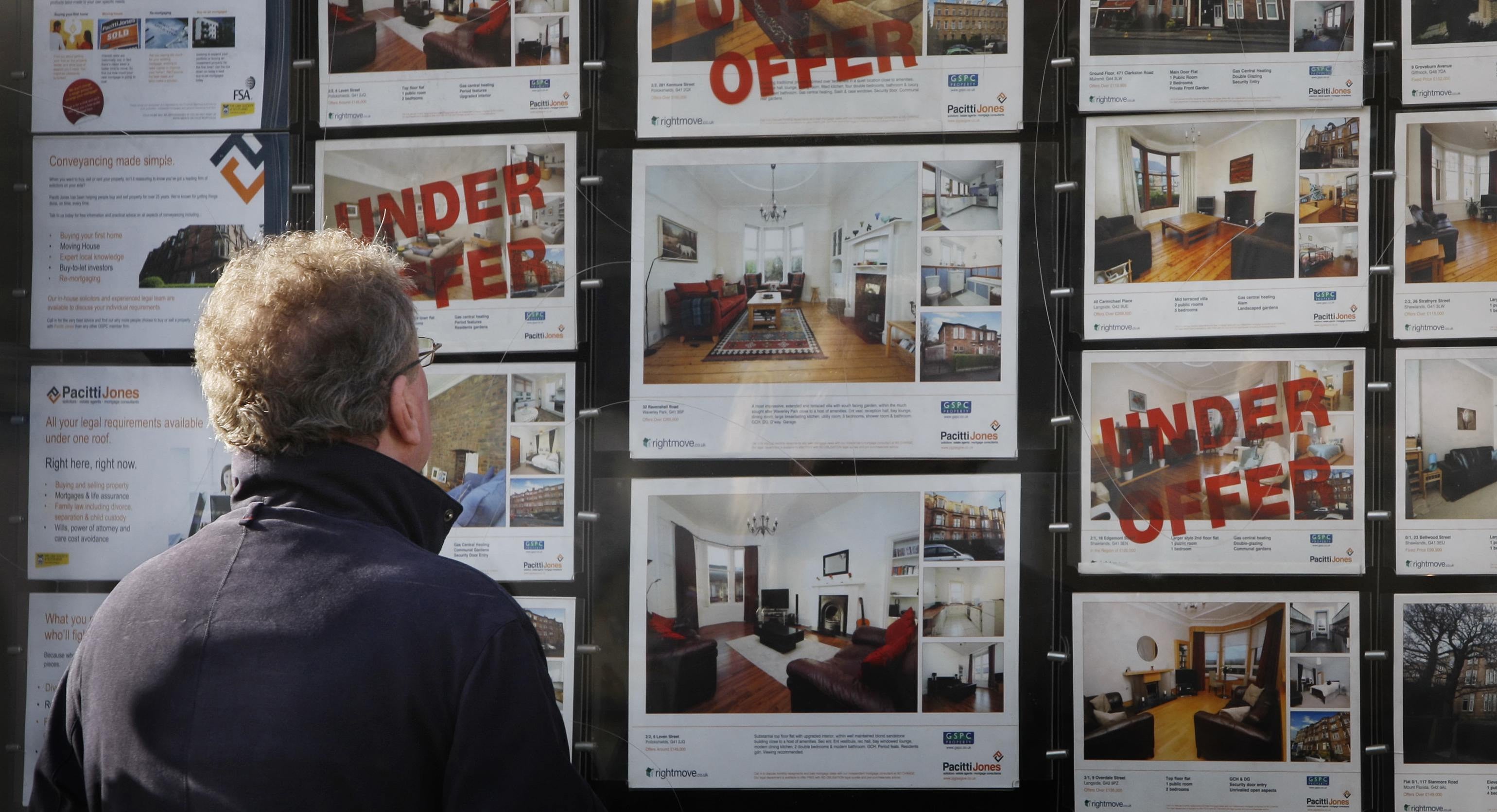Cheap mortgage deals disappear amid expectations of interest-rate rise from Bank of England
Households on variable deals face higher payments

Your support helps us to tell the story
From reproductive rights to climate change to Big Tech, The Independent is on the ground when the story is developing. Whether it's investigating the financials of Elon Musk's pro-Trump PAC or producing our latest documentary, 'The A Word', which shines a light on the American women fighting for reproductive rights, we know how important it is to parse out the facts from the messaging.
At such a critical moment in US history, we need reporters on the ground. Your donation allows us to keep sending journalists to speak to both sides of the story.
The Independent is trusted by Americans across the entire political spectrum. And unlike many other quality news outlets, we choose not to lock Americans out of our reporting and analysis with paywalls. We believe quality journalism should be available to everyone, paid for by those who can afford it.
Your support makes all the difference.Dozens of cheap mortgage deals have disappeared as expectations rise that the Bank of England will soon increase interest rates.
This week there were 22 fixed-rate deals at less than 1 per cent, compared to 82 deals on 25 October, according to analysis by Defaqto.
The average rate for a first-time buyer seeking a two-year fixed-term mortgage with a 5 per cent deposit jumped from 2.45 per cent last week to 2.69 per cent this week.
On Thursday, the Bank’s Monetary Policy Committee (MPC) will announce whether it has moved the base rate from its current record low of 0.1 per cent. Analysts believe that the MPC is becoming more likely to raise rates in an effort to cool rising inflation.
A rate rise would hit homeowners on variable rates first, including 850,000 with tracker mortgages and 1.1 million on standard variable rates (SVRs).
A little under three-quarters of mortgage borrowers – those who are on fixed-rate deals – will be shielded from rises in their payments until their current deal expires.
If the Bank raised the base rate by 0.25 per cent, the average tracker-mortgage customer would pay an extra £26 per month, while the average customer on an SVR would pay £16 more, according to figures from UK Finance.
A base-rate rise to 1 per cent would equate to increases of £93 per month for tracker mortgages and £57 per month for SVRs.
Accountancy firm Mazars calculated that households would pay a combined £1.9bn extra on their mortgage costs if the base rate increased to 0.5 per cent.
UK households are currently paying £17.5bn annually in interest payments on floating-rate debt. These payments are likely to be affected immediately by an interest-rate rise.
This includes floating-rate mortgages, credit-card debt, and other unsecured personal lending. Consumers will be hit by further rises as fixed-rate debt is converted to floating-rate.
Katie Brain, consumer banking expert at Defaqto, said the period of ultra-low interest rates had to end “at some point” and advised people to be careful and look out for expensive fees.
“Sometimes any saving on the headline interest rate can be wiped out by expensive fees, and you need to know what the cost is over the whole period you are tied in for,” Ms Brain said.
Savers may benefit from increasing rates, but may have to wait for banks to pass on the change, experts said.
Rachel Springall, a finance expert at Moneyfacts.co.uk, said cash savings interest rates “fell to record lows on average this year, but thankfully the market has been showing green shoots of recovery”.
Sarah Coles, senior personal finance analyst at Hargreaves Lansdown, said: “We need to track down what we’re making on our savings, and if we’re earning next to nothing we should keep our eyes peeled for better deals from smaller and more competitive banks in the immediate aftermath of a rate rise.”
The average easy-access savings account on the market pays just 0.19 per cent, while the average easy-access Isa pays 0.26 per cent, according to figures from Moneyfacts.co.uk.
In November 2018, the average easy-access account paid 0.64 per cent and the average easy-access Isa paid 0.94 per cent.
Join our commenting forum
Join thought-provoking conversations, follow other Independent readers and see their replies
Comments